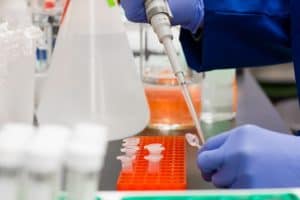Biosimilars: time for an approval pathway in the US
pharmafile | March 23, 2009 | News story | Research and Development, Sales and Marketing | US, generics
Congress has received another bill seeking to establish a biosimilars approval pathway in the US. HR 1427 represents the latest attempt to secure legislation for a biosimilars approval pathway in the US. With a five-year exclusivity period, the proposed bill will be viewed as pro-biosimilar and could therefore face considerable opposition from prescription drug manufacturers. However, given the escalating cost of healthcare in the US, the industry is under pressure to find a solution, say analysts Datamonitor.
Escalating healthcare costs, driven by the increased use of biological therapies, has prompted a team of US congressmen led by Representative Henry Waxman to submit yet another biosimilars bill to Congress.
HR 1427, the Promoting Innovation and Access to Life-Saving Medicine Act, is the latest in a series of similar bills proposed to Congress, all of which have failed. Through the bill, the team (which also includes Representatives Frank Pallone, Nathan Deal and Jo Ann Emerson) hopes to secure legislation for a biosimilars approval pathway in the US.
HR 1427 is seen as a key step in President Obama's strategy of lowering the cost of biopharmaceuticals and making healthcare affordable to all.
The bill would provide the FDA with the necessary authority to approve abbreviated applications for biosimilar products, an authority which the European Medicines Agency (EMEA) has had since 2006.
Critical to this is that applicants must prove to the FDA that there are no clinically meaningful differences between the biosimilar and the reference product via clinical trials. Under the terms of the bill, the FDA would have scientific discretion to determine which studies would be necessary to prove the safety and efficacy of biosimilars.
In comparison with other bills, HR 1427 is pro-biosimilar, with a five-year exclusivity period consistent with the Hatch-Waxman Act. Extensions to this are possible, particularly when new indications are approved, but this period of exclusivity is likely to provoke stern opposition from prescription drug manufacturers.
Three other bills currently being reviewed by Congress call for exclusivity periods of 12 to 15 years, which would give innovator companies ample time to recoup their investments.
With a new president in the Whitehouse, big pharma warming to the concept of selling biosimilars and healthcare costs escalating at a staggering rate, the time for compromise and progress may be here.
As one industry trade group representative commented after the publication of the new bill: "We all have a common interest in establishing a responsible pathway."
Related research:
Negotiating the Emerging Biosimilars Landscape: Key developments in the regulatory environment priced $3,835
Biosimilars Series: Stakeholder Analysis – A Panoramic View of the Emerging Biosimilars priced $7,600
Generics Series: Generics Trends in the Seven Major Markets and Beyond priced $3,800
Related Content

Sharp invests $100m in US and EU manufacturing and packaging facilities
Sharp Services, a pharmaceutical packaging and sterile manufacturing specialist, has announced investments totalling $100m across …

Moderna doses first US patient in phase 1 trial of mRNA-4106 for solid tumours
The START Center for Cancer Research has dosed the first US participant in Moderna’s phase …

Strategic alliance announced between Recipharm and Exela
Recipharm and Exela have announced that they have entered into an exclusive strategic alliance. The …






